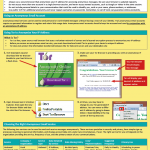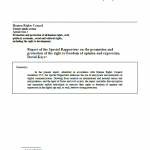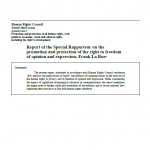A secure cyberspace is critical to our prosperity. We use the Internet and other online environments to increase our productivity, as a platform for innovation, and as a venue in which to create new businesses. “Our digital infrastructure, therefore, is a strategic national asset, and protecting it—while safeguarding privacy and civil liberties—is a national security priority” and an economic necessity. By addressing threats in this environment, we will help individuals protect themselves in cyberspace and enable both the private sector and government to offer more services online. As a Nation, we are addressing many of the technical and policy shortcomings that have led to insecurity in cyberspace Among these shortcomings is the online authentication of people and devices: the President’s Cyberspace Policy Review established trusted identities as a cornerstone of improved cybersecurity.
Read more →



